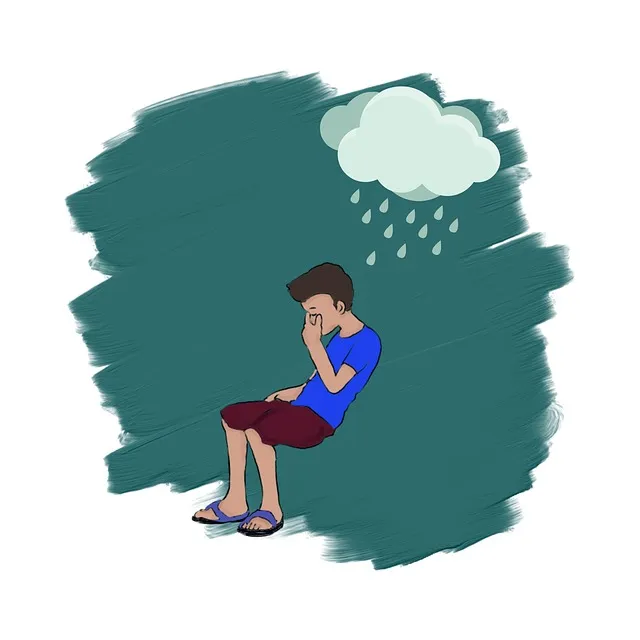Depression, a serious mental health concern, can be prevented through early recognition of signs like persistent sadness and changes in appetite/sleep. Kaiser Permanente mental health center Highlands Ranch emphasizes understanding risk factors such as trauma and stress to implement effective strategies. Lifestyle changes, including healthy eating, exercise, sleep, and social connections, are vital for prevention. Cognitive Behavioral Therapy (CBT) and holistic education programs teach coping skills, while building a strong support network provides emotional comfort. The center also promotes cultural competency and public awareness to empower diverse communities in mental health care.
Depression is a prevalent yet treatable condition that affects millions. If you’re seeking ways to prevent and manage it, this article is your guide. We explore essential strategies for maintaining mental well-being, from recognizing signs and understanding risk factors to adopting lifestyle changes. Discover the power of Cognitive Behavioral Therapy (CBT) and learn how building a strong support network can be transformative. For those in Highlands Ranch, Kaiser Permanente’s mental health center offers specialized care tailored to your needs.
- Understanding Depression: Signs and Risk Factors
- Lifestyle Changes for Mental Well-being
- Cognitive Behavioral Therapy Techniques
- Building a Support Network: Friends and Family
- Professional Help: Kaiser Permanente's Role in Highlands Ranch
Understanding Depression: Signs and Risk Factors

Depression is a common yet serious mental health condition that can significantly impact an individual’s daily life and overall well-being. Understanding what constitutes depression and recognizing its signs are essential steps in prevention. According to the Kaiser Permanente mental health center in Highlands Ranch, symptoms may include persistent feelings of sadness, loss of interest in activities once enjoyed, changes in appetite or sleep patterns, fatigue, difficulty concentrating, and thoughts of death or suicide. These signs can vary from person to person, making early detection challenging.
Several risk factors contribute to the development of depression, and being aware of these can help in prevention strategies. The Kaiser Permanente center highlights that traumatic life events, such as loss of a loved one, financial difficulties, or significant relationship problems, can trigger depressive episodes. Chronic stress, either from work or personal relationships, and certain medical conditions are also risk factors. Additionally, individuals with a history of anxiety or previous depressive episodes are more susceptible to experiencing depression again, emphasizing the need for ongoing mental health support, including conflict resolution techniques and trauma support services, to mitigate these risks.
Lifestyle Changes for Mental Well-being

At the Kaiser Permanente mental health center Highlands Ranch, experts emphasize that integrating lifestyle changes can significantly contribute to preventing depression and enhancing overall mental well-being. This includes adopting healthy eating habits, as nutrition plays a crucial role in brain function and mood regulation. Regular exercise is another cornerstone; physical activity boosts serotonin levels and reduces stress hormones, fostering resilience against depressive episodes. Adequate sleep, often overlooked but vital, ensures the body’s restorative processes are effective. Additionally, cultivating strong social connections through engaging with friends, family, or community groups provides emotional support networks that can mitigate risks of depression.
Building resilience is a key strategy in mental health risk management planning, and it aligns with the recommendations from the Kaiser Permanente center. This involves developing coping mechanisms to handle stress, anxiety, or traumatic events effectively. Mental health professionals are encouraged to assess their clients’ mental health risks regularly through comprehensive assessments, which can be tailored to individual needs. By incorporating lifestyle changes and implementing robust risk management planning, individuals can take proactive steps toward maintaining good mental health and preventing depression, with support from trusted healthcare providers like the Kaiser Permanente Highlands Ranch mental health center.
Cognitive Behavioral Therapy Techniques

Cognitive Behavioral Therapy (CBT) is a powerful tool in the arsenal of depression prevention strategies. Offered by mental health professionals, such as those at Kaiser Permanente Mental Health Center Highlands Ranch, CBT focuses on identifying and changing negative thought patterns and behaviors that contribute to depressive episodes. By learning to challenge and replace distorted thinking with more realistic and balanced thoughts, individuals can gain a sense of control over their emotions and mood.
The Mental Health Education Programs Design often incorporated into CBT teaches practical self-care practices, including stress management techniques. This holistic approach empowers people to proactively manage their mental well-being by incorporating healthy habits into daily routines. Through Self-Care Practices, individuals can learn to recognize triggers, set boundaries, and develop coping mechanisms that prevent the onset or escalation of depression.
Building a Support Network: Friends and Family

Building a strong support network is an essential component of depression prevention and overall mental well-being. Friends and family play a crucial role in providing comfort, understanding, and encouragement during challenging times. The supportive connections we foster can offer a sense of belonging and help us navigate through difficult emotions. At the Kaiser Permanente mental health center Highlands Ranch, professionals emphasize the power of social support as a buffer against depression, especially when individuals face life’s stressors or are recovering from traumatic events.
Surrounding yourself with compassionate people who listen and care can significantly impact your resilience. Engaging in open conversations about your feelings with trusted loved ones allows for emotional release and validation. Moreover, encouraging practices like self-care routine development for better mental health and compassion cultivation can strengthen these relationships, fostering a supportive environment that promotes healing and growth, especially when coupled with Trauma Support Services offered by the center.
Professional Help: Kaiser Permanente's Role in Highlands Ranch

In the fight against depression, seeking professional help is a crucial step. Kaiser Permanente, renowned for its comprehensive healthcare services, operates a dedicated mental health center in Highlands Ranch, Colorado. This center serves as a beacon of hope for individuals grappling with depression, offering specialized care tailored to unique needs. The team of seasoned therapists and counselors leverages evidence-based therapies to facilitate healing and recovery.
Beyond direct patient care, Kaiser Permanente plays a pivotal role in public awareness campaigns focused on destigmatizing mental health issues and promoting self-esteem improvement. Additionally, they invest significantly in healthcare provider cultural competency training, ensuring staff are equipped to address the diverse needs of their community. This holistic approach underscores Kaiser Permanente’s commitment not just to treating depression, but also to fostering a supportive environment where everyone feels empowered to seek help.
Depression is a serious yet treatable condition, and a multi-faceted approach to prevention can significantly improve outcomes. By understanding the signs and risk factors, adopting healthy lifestyle changes, exploring evidence-based therapies like Cognitive Behavioral Therapy, fostering strong support networks, and knowing when to seek professional help from Kaiser Permanente mental health center Highlands Ranch, individuals can take proactive steps towards maintaining and enhancing their mental well-being.






